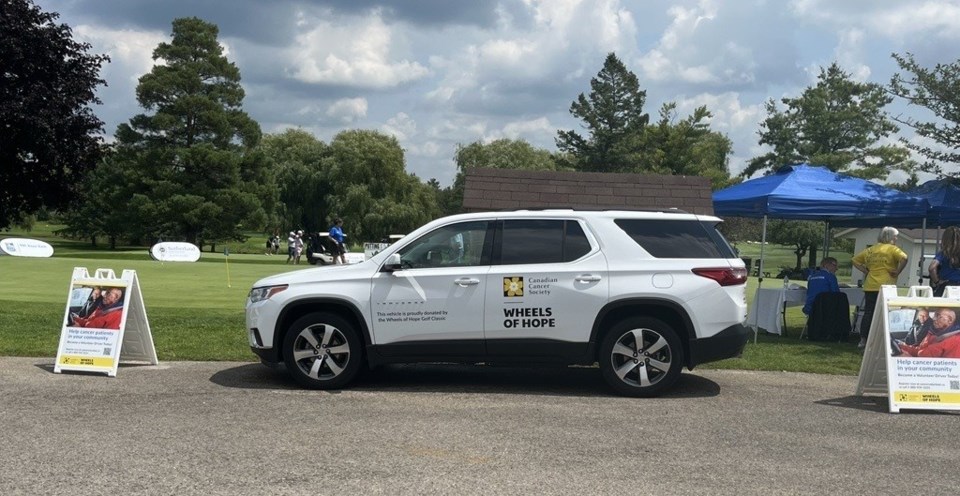People helping people through Wheels for Hope in Guelph can only be done if there are enough volunteers to drive patients to their cancer treatments.
Mark Kahan, recruitment coordinator for the Guelph Wheels for Hope is putting out a plea for more volunteer drivers.
“I wish I could say we only needed three or four people but … like I said, the reality is we need probably 10 … to 20 people,” said Kahan.
The program currently has four volunteers.
He is looking for volunteers to give a day per week or a few days a month to drive passengers.
The program is run Monday through Friday. Most patients need to be taken to Kitchener, Hamilton and occasionally London, Kahan said.
The program is provided through the Canadian Cancer Society and has run in Guelph since 1984. So far this year in Guelph-Wellington about 800 rides have been given.
“So we have a van that's in Guelph. And I really wanted to stress the need of volunteer drivers that we need to drive that van because it's basically sitting there and not being used. We've had a few drivers that have left for medical leaves, and snowbirds. They're gone for the winter. They're not back until spring,” he said.
Volunteers are welcomed to use their own vehicle as long as it is 100 per cent smoke free, Kahan said. Mileage will be reimbursed.
Kahan is a survivor of childhood cancer.
“I always say that … this job found me,” he said of his current role.
When he was a volunteer for Wheels for Hope and before he started he was a bit worried the passengers would be sad or depressed. “But at the same time I couldn't have been more wrong. The people I drove were lifting my spirits up,” he said.
Kahan said he hears from volunteers that some of the passengers will bring them baked goods or try to give them Tim Hortons’ gift cards.
“It's just really special, special relationships between complete strangers driving them to their cancer treatments. Like I said, the volunteers have told me over and over that Mark, they say that they … feel like they get more out of this program than the people that they're helping,” he said.
Kahan had been told by a volunteer and a patient an anecdote showing the depth and care of the program. The two of them in the car started talking about Elvis. The driver put Elvis on the car stereo.
“So she started singing all the way to her treatments, you know, singing along with Elvis. And it was just the driver told me later that he had kind of tears rolling down his face. He didn't let the client know that,” said Kahan.
“You know I’m not saying that every person is happy and going to be singing all the way to their cancer treatment. But my point is, it's the gratitude and the compassion of these volunteers. And it's the smallest little acts of kindness can make a huge difference in someone's life. You know that ... little thing just made her day. And she said to me, Mark, I was just tickled pink. I'll never forget those words.”
“We have a lot of volunteers that have lost family members that they dedicate their driving to their family members that they lost. Definitely a lot of people that have lost their husbands or wives to cancer,” said Kahan.
He said even some of the drivers used the program previously when they went through cancer.
“Driving someone doesn't seem like a big deal for most of us. But it is a huge deal for the people we're transporting. Because they're using us because they don't have a way to get to their treatments,” Kahan said.
“And I would just say that our volunteers are literally making a difference in someone's life.”
